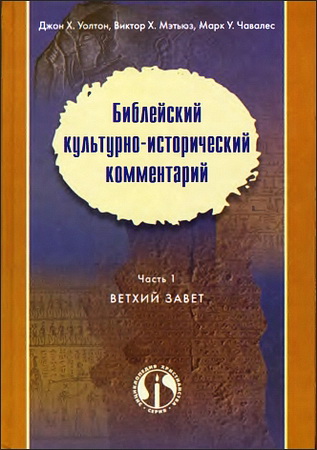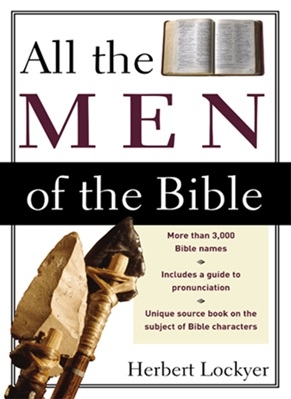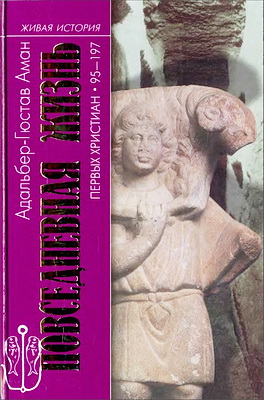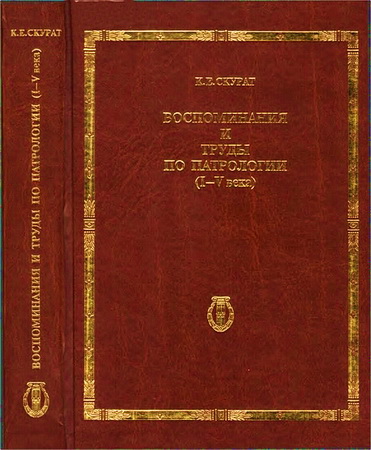
Lockyer - All the Men of the Bible
Herbert Lockyer - All the Men of the Bible
Zondervan, 1988. – 384 p.
ISBN 978-0-310-53548-5
Many readers of the Bible treat its genealogical lists as despised regions, and wonder why they form part of a divine revelation such as the Bible is. At first glance, there seems to be no point or profit in the bare enumeration of the names of men who died thousands of years ago.
Yet because the Bible is the inspired Word of God, even these uninteresting lists of names were written for our learning, and if properly studied they yield remarkable results. Many of these names describe nations, as well as men, and have therefore a priceless historical value. Consulting them, we find they often show the course taken by men in their settlement over the earth. Ancient Hebrew names, which at first sight might appear unattractive, and are passed over as unworthy of serious thought, have something about them which compels our prayerful consideration. In many cases Bible names are fragments of ancient history, revelations of divine purposes, expressions of hopes and prophecies of the future.
Every Jew kept a record of his lineage and was proud if he could claim royal or priestly descent. Joseph, for example, could boast of himself as “a son of David.” The genealogical lists of Chronicles, Ezra, Nehemiah, Matthew and Luke, containing the majority of named men, prove how meticulous the Jews were in the preservation of their pedigree. It was common in almost every Jewish family to transcribe a family tree.
Josephus, the Jewish historian who lived in the time of our Lord, tells us that he could trace his ancestry back to the Maccabeans, or priest-rulers, from public registers. He also states that wherever Jews settled such registers were kept of births and marriages of the priesthood, and that registers went back some two thousand years. That the Israelites were most interested in the preservation of their pedigree can be proven by I Chronicles 9:1. The forfeit of those tribes who had lost their pedigree is seen in Ezra 2:59 and Nehemiah 7:63.
Truth taught by names is another important aspect to observe. The significance of names opens up a field of pleasant and profitable investigation to all true lovers of Scripture. While many of the names may not have been designed to be typical, they are certainly suggestive of spiritual truth, as can be seen in the names Jacob gave his sons. In ancient Israel the name of a person was supposed to indicate some characteristic of that person, or be linked to circumstances, however trivial or monotonous, connected with his birth. Names and nature, as well as names and facts, were made to correspond, as can be found in the name Moses gave his son (Ex. 2:22), and the naming of Ichabod (I Sam. 4:21). As we review the suggested meanings given to the names alphabetically set forth in the following chapter, we will find that they cover many associations.
Names denote natural or personal qualities. A classic illustration of this is Abigail’s plea to David for her worthless husband: “. . . as his name is, so is he: Nabal is his name and folly is with him” (I Sam. 25:25). Nabal means “fool.” In effect then, Abigail said, “Pay no attention to my husband. He’s a fool by name, and a fool by nature.”
Names point to an occupation. There are many instances of these occupational names: Archippus, “governor of horses”; Asa, “physician”; Carmi, “vine-dresser.”
Names bear a symbolic or prophetic feature. An instance of this is seen in the name Shear-jashub, “a remnant shall return” (Isa. 7:3). Maher-shalal-hash-baz, one of the longest names in the Bible, means “Haste ye, haste ye, to the spoil” (Isa. 8:1).
Names are fixed immediately after birth. In the choice of a name for a child, the mother usually exercised such a privilege (Gen. 19:37; 29:32). Sometimes, however, the father chose the name (Gen. 4:26; 16:15). Occasionally other interested persons came forward with a name (Ruth 4:17; Luke 1:57–63).
John the Baptist and Christ had names divinely given before their birth (Luke 1:13; Matt. 1:21).
Names are bestowed indifferently on men and women. Now and again a man and a woman bear the same name, for example, Abihail (Esther 2:15; I Chron. 2:29). Then persons and places have the same name. Did you know that Eden is the name of a man as well as the garden where Adam first lived, and that Bethlehem is the name of a person as well as the town where Jesus was born?
Names are connected with family relationships. A few names are taken from relatives (Luke 1:59). Ahab means “father’s brother”; Ahban, “brother is son”; Ahiam, “maternal uncle.” Ab means “father,” so we have many names beginning with these letters, such as Abimelech (“whose father is king”).
Names carry a religious relationship or significance. Sometimes a name expressed some hope or aspiration on the part of parents, as in John, meaning, “gracious gift of God.” Other names (such as Samuel, meaning “God hath heard”) were conceived in the spirit of prayer because they expressed religious expectation on behalf of the child. This name marks the fact that the child was born in answer to prayer.
Ancient peoples fashioned names out of the names of their gods, proved in Pan-Bel-adagal, meaning “I look to Bel,” and in other heathen names in which gods are invoked. This also characterizes many Hebrew names into which the idea of God enters freely. The divine name El, meaning “God,” is incorporated within many proper names of persons, as in Israel or Eliakim. The same is true of names containing Jah, or Jeho, as in Jahaziah and Jehoiakim. Other names extol divine sovereignty, as in Adonijah, meaning, “Jehovah is Lord.”
* * *
NAHUM
[Nā′ hum]—COMPASSIONATE, COMFORTER or FULL OF COMFORT.
1. The prophet who was born at Elkosh in Galilee, and who prophesied against Nineveh (Nah. 1:1).
The Man Who Preached Doom
Nothing is known of this Minor Prophet outside of what we find in the opening of his small yet strong book. He was born at Elkosh, a village of Palestine. But although Nahum is among the notable unknown of the Bible, he was a student of the history of his time and was raised up to comfort God’s people. He prophesied against Nineveh about 150 years after Jonah’s revival there. At that time the city was still at the height of its glory (Nah. 3:16, 17). The empire was extremely cruel. The people gloated that “space failed for corpses of their enemies.” They made “pyramids of human heads.” Pillars were covered with the flayed skins of their rivals.
Nahum’s mission was to declare the terrible doom of Nineveh and one hundred years later it fell. So great was the destruction of the city of the most ferocious, sensual, diabolically atrocious race of men that ever lived, that Alexander the Great marched by and did not know that a great city was under his feet. Lucian wrote, “Nineveh is perished and there is no trace left where once it was.” Nahum, convinced that God was slow to anger but would yet take vengeance on His adversaries, “focusses the light of God’s moral government upon wicked Nineveh and chants the death and dirge of the world’s greatest oppressor.”
The leading lessons to be gleaned from the Book of Nahum are encouraging to faith:
- I. The goodness and unchangeableness of Jehovah.
- II. The limits of divine forbearance.
- III. Right prevails in the end.
- IV. Darkness comes before the dawn.
- V. The universality of God’s government, its gracious purpose: its retributive character.
- VI. Man’s extremity is faith’s hour and God’s opportunity.
2. Another Nahum. In the A. V. Naum is mentioned as an ancestor of Jesus Christ (Luke 3:25).





Комментарии
Пока нет комментариев. Будьте первым!